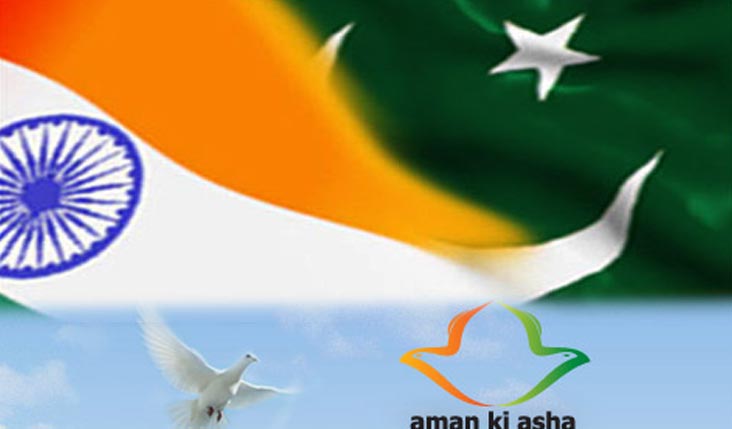For the IT industries of Pakistan and India to cooperate would be a win-win business deal
By Babar Ayaz
The title of one of the most thought-provoking books “The World is Flat” written by Thomas L. Friedman’s came to him while interviewing Infosys Technologies Limited (ITL) CEO Nandan Nilekani in Bangalore. Giving an inspiring overview of the information technology revolution in the world, Nilekani said, “Tom, the playing field is being leveled.”
Speaking at the ‘Aman ki Asha Business Meet’ in Delhi earlier this year Nilekani’s boss N. R. Narayana Murty said, “One potential area of cooperation (between Pakistan and India) is of course the IT industry. India has achieved tremendous success in this area which is translated in higher GDP growth rate, increased prosperity for millions of youngsters and the creation of more degree programmes in the technical sector.”
He thinks that like India, Pakistan also has a talent pool of English speaking youth who can be hired at competitive costs. His only concern was the guarantee for the continuation of business. This concern is natural and shared by the business people on both sides given the chequered history of Pakistan and India’s contentious relations.
Following up on the Pakistan-India Business Meet in Delhi this May, which was jointly organised by the Jang Group and Times of India Group, the next phase began last week in Karachi. Leading IT industry entrepreneurs in Pakistan were invited to pick up the thread from where it was left off at the Pakistan-India IT industry meeting in Delhi.
The IT company heads attending the meeting agreed that there was great potential to do business with their Indian counterparts. One view was that the Pakistan IT industry can benefit from the availability of high-end technology human resource in India, while the Indians can dip into the large English speaking human resource pool in Pakistan. As serious professionals, the meeting participants were also conscious that given the status of the cold relations between the two countries, Indian IT companies would not be able to make any direct investment at present. Though there is no written law barring Pakistan and India from investing in each other’s countries, their strained relations have led the two governments to discourage investments. So what’s the next option? Joint ventures between the IT firms? But even this might not be acceptable to our establishment.
The next possible “trade” would be the Indian IT industries outsourcing business to Pakistani firms. This is doable and could be the first step towards larger cooperation between the Pakistan and Indian industry. There could be franchising arrangements under which Indian IT companies can work with Pakistan. The government here has allowed some Pakistani companies to obtain franchises from Indian companies. Similarly, the Pakistan textile and garment designers are working with Indian businessmen to open franchised outlets in India.
Another important area where Aman Ki Asha IT Committee members on both sides can make by a beginning to arrange the training of Pakistani youth either in Pakistan or in India. This reminds me of the suggestion given to the Tata Group delegation by Pakistan’s former Prime Minister Shaukat Aziz that they should open non-profit training institutes in Pakistan. A Tata Group senior official told me excitedly in Mumbai in 2005 that they would be working on setting up this institute. But then the hawks on our side threw a spanner in the works as they could not tolerate an Indian company setting up an institute in Pakistan. It is this mindset that needs to be changed in Islamabad and Delhi if both the countries have to benefit from each other. But still I am hopeful that IT experts will be allowed to come to Pakistan for a short three month training course for our youth. This could be the beginning of cooperation between the IT industries of the two countries.
According to Ganesh Natarajan, CEO of Zensar Technologies, the Indian IT industry size is about $70 billion of which $49 billion is software, BPO and other services export. After a phenomenal growth the Indian IT industry is now facing human resource constraints and has started setting up centers in Egypt, Philippines and Bangladesh. Natarajan was of the view that India can “achieve $5 billion IT exports using Bangladesh and would be interested in Pakistan too.”
On the other hand, the Pakistan IT industry according to PASHA President Jehan Ara is worth $2.4 billion, of which exports are about half of this amount. “The industry employs about 150,000 educated people and has been growing in double digits.” Her colleagues say that the perception in India that continuity of business is not possible can be easily changed by sharing with them the fact that in all these years of turmoil, the IT industry in Pakistan has lost only one working day.
It is clear that this growth rate can be doubled in a short time if Pakistan gets business from Indian companies. The present per seat-cost in the Pakistan IT industry is much lower than India where human resource availability has reached a saturation level that has pushed wage levels pretty high. For the IT industries of both countries to cooperate would be a win-win business deal.
The only thing is that our government should be convinced that like other trades, IT should also be facilitated and allowed to work with the Indian IT giants. Unless there is this change in the mindsets of our government and national security managers about doing business with India and de-bundling the political and business issues, thousands of educated Pakistani youth will not be able to enjoy the benefits of the ‘flattening world.’
The writer is a senior journalist based in Karachi. [email protected]









